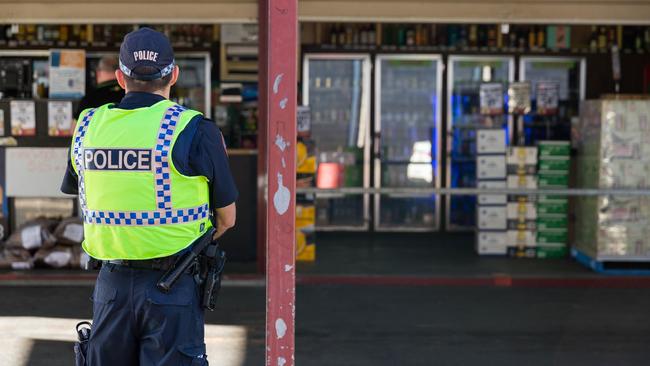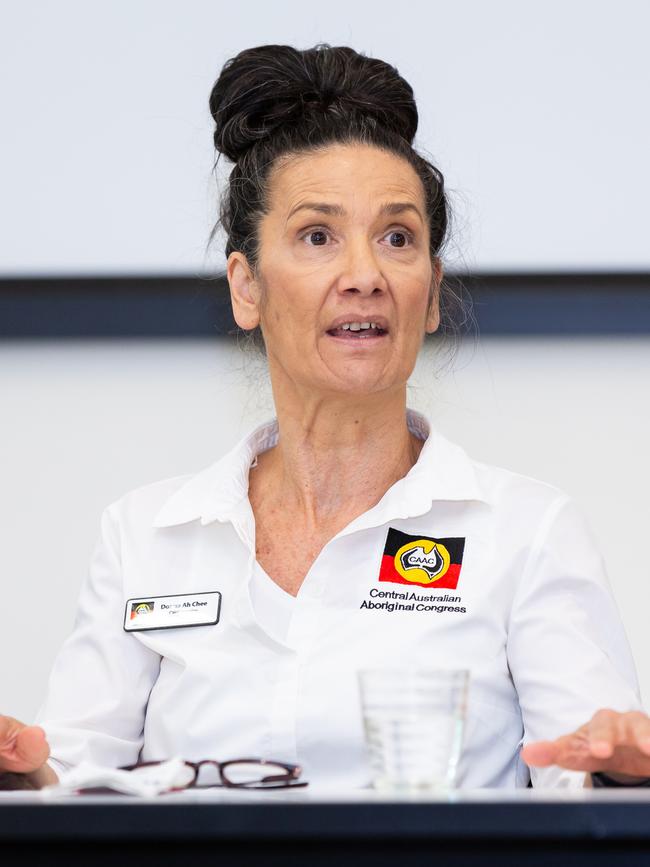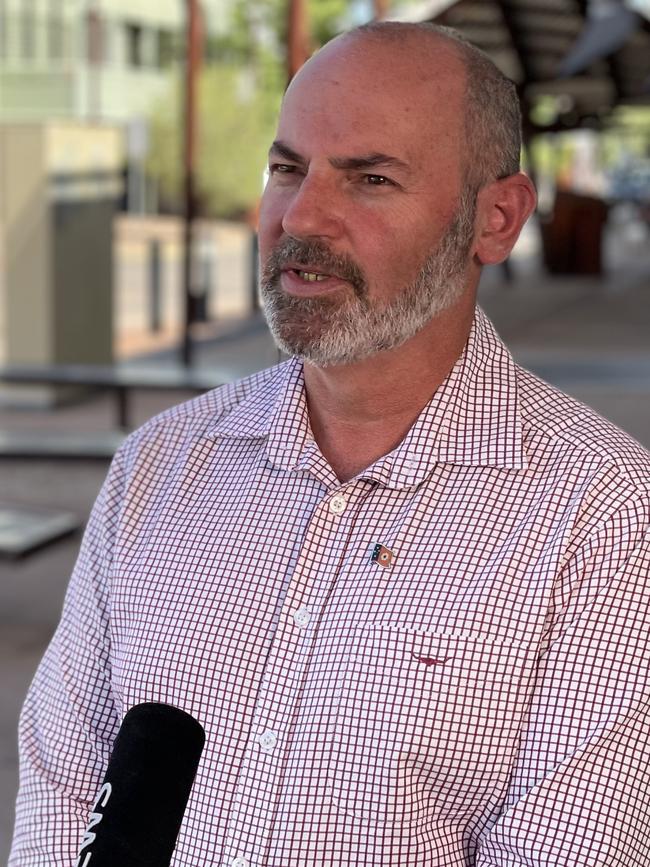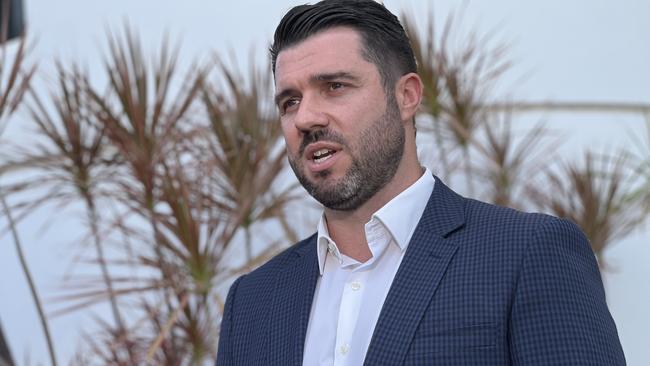Potter defends handling of PALI training as criticism mounts
‘Recipe for disaster’: The largest Aboriginal health organisation in Central Australia says the government has opened the floodgates to alcohol-related harms.

Politics
Don't miss out on the headlines from Politics. Followed categories will be added to My News.
The largest Aboriginal health organisation in Central Australia has criticised the sudden removal of bottleshop cops, saying the government has “opened the floodgates” to alcohol harms.
It comes as Police Minister Brent Potter on Tuesday announced 20 additional officers would be sent to Alice Springs.
Thirty-two Police Auxiliary Licensing Inspectors were removed from bottle shops in Alice Springs and Katherine last week to begin a four month training course fast tracking them to become constables.
At the start of last week there were no PALIs in Katherine bottleshops and five of Alice Springs’ nine outlets were left to fend for themselves, despite earlier promises from Mr Potter there would be full coverage.

Central Australian Aboriginal Congress said the removal of PALIs – who have the power to stop takeaway alcohol sales and enforce the Banned Drinker Register – was already being felt in Alice Springs.
“The town is already seeing increasing alcohol related chaos,” chief executive Donna Ah Chee said.
“Just like any employee, (PALIs) should have the right to training and career progression.
“What I don’t understand is why the government would withdraw them all at the same time, on extremely short notice.
“That is a recipe for disaster.”
Data shows alcohol sales were down 20 per cent in the last quarter of 2023, compared with the same period in 2022, and assaults involving alcohol had dropped 42 per cent.
Ms Ah Chee said the removal of PALIs would undermine progress the town had made on reducing alcohol-related harm.
“We cannot afford to take a single step backwards,” she said.

A local business owner told Shadow Treasurer Bill Yan it felt like the end of the Stronger Futures grog bans, which lapsed in 2022 leading to a wave of alcohol-fuelled crime.
“He said it feels the same ... his words were, ‘It was like a Taylor Swift concert, people just came from everywhere’, and he had all sorts of issues on the outlet that night,” Mr Yan said.
Federal Lingiari MP Marion Scrymgour was also critical of her Territory Labor colleagues, saying the PALIs should not have been removed without a transition plan.
Police Minister Brent Potter said there was “misinformation” about bottleshops being left unattended, and the constable training program would boost the capacity of the force.
“There are adequate constables and PALIs filling up all shops,” he said, noting a “rotating roster” across liquor outlets in Katherine, Tennant Creek and Alice Springs.

“By continuing to modernise training and improving retention strategies for our police, the community will benefit through having more police on the ground with more powers.
“Don’t be fooled by the CLP’s scare campaign, not all PALIs are undergoing the fast-tracked constable course, and those officers who are undertaking this 16 week course will be returning to duties that target liquor outlets with further powers and provisions to protect our community.”
Braitling MLA Josh Burgoyne said the redeployment of 20 police officers was a rushed response to a preventable “crisis”, and more needed to be done to better resource police across the board.
“Alice Springs currently has 22 less police today than when the Prime Minister of Australia flew in to Alice Springs over a year ago, promising additional police officers,” he said.
Mr Burgoyne called for the extra officers to remain in Central Australia for the duration of the PALIs training.
Mr Potter said the redeployment of the officers was for an unrelated “social order” operation, and they would not be carrying out PALI duties.





